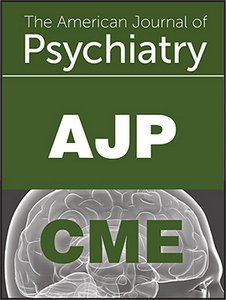艾氯胺酮治疗成人抑郁症:PRISMA系统综述和荟萃分析。
IF 15.1
1区 医学
Q1 PSYCHIATRY
引用次数: 0
摘要
目的:鼻用艾氯胺酮已被批准作为治疗难治性重度抑郁症伴急性自杀意念和行为的辅助疗法。作者对其对抑郁症和自杀的疗效以及副作用的现有数据进行了系统的回顾和荟萃分析。方法于2024年3月24日使用PRISMA方法以关键词“esketamine”检索smedline。数据处理和统计分析采用4.3.3版R软件,meta分析采用METAFOR软件包。结果在最初鉴定的1115篇文章中,87篇被纳入分析和讨论。在第2-4周,随机对照试验大多为阴性或失败;然而,荟萃分析显示,对抑郁症有微弱但显著的积极作用(效应大小范围,第2-4周时为0.15-0.23),类似于非典型抗精神病药物对难治性抑郁症的增强策略。有关自杀的效应量在任何时间点均不显著。敏感性分析得出了同样的结果。结论:研究结果表明,艾氯胺酮作为抗抑郁药的辅助药物对难治性抑郁症的疗效适中(类似于非典型抗精神病药物的增强策略),对自杀本身没有作用。这些发现需要考虑到艾氯胺酮的滥用潜力和长期影响尚不完全清楚的事实。讨论了在测试阶段有关死亡和出现自杀现象的一些令人震惊的迹象,以及其他监管问题。本文章由计算机程序翻译,如有差异,请以英文原文为准。
Esketamine Treatment for Depression in Adults: A PRISMA Systematic Review and Meta-Analysis.
OBJECTIVE
Intranasal esketamine has been approved as an adjunctive therapy for treatment-resistant major depressive disorder with acute suicidal ideation and behavior. The authors conducted a systematic review and meta-analysis of the available data on its efficacy against depression and suicidality as well as its side effects.
METHODS
MEDLINE was searched with the keyword "esketamine" on March 24, 2024, using the PRISMA method. Data processing and statistical analysis were performed with R, version 4.3.3, and the meta-analysis was performed with the METAFOR package.
RESULTS
Of 1,115 articles initially identified, 87 were included for analysis and discussion. At weeks 2-4, randomized controlled trials were mostly negative or failed; however, the meta-analysis returned a weak but significant positive effect for depression (effect size range, 0.15-0.23 at weeks 2-4), similar to augmentation strategies with atypical antipsychotics for treatment-resistant depression. The effect size concerning suicidality was not significant at any time point. The sensitivity analysis produced the same results.
CONCLUSIONS
The study findings suggest that esketamine's efficacy as an add-on to antidepressants is modest in treatment-resistant depression (similar to augmentation strategies with atypical antipsychotics) and is absent against suicidality itself. These findings need to be considered in light of esketamine's abuse potential and the fact that long-term effects are still not fully known. Some alarming signs concerning deaths and emerging suicidality during the testing phase are discussed, along with other regulatory issues.
求助全文
通过发布文献求助,成功后即可免费获取论文全文。
去求助
来源期刊

American Journal of Psychiatry
医学-精神病学
CiteScore
22.30
自引率
2.80%
发文量
157
审稿时长
4-8 weeks
期刊介绍:
The American Journal of Psychiatry, dedicated to keeping psychiatry vibrant and relevant, publishes the latest advances in the diagnosis and treatment of mental illness. The journal covers the full spectrum of issues related to mental health diagnoses and treatment, presenting original articles on new developments in diagnosis, treatment, neuroscience, and patient populations.
 求助内容:
求助内容: 应助结果提醒方式:
应助结果提醒方式:


